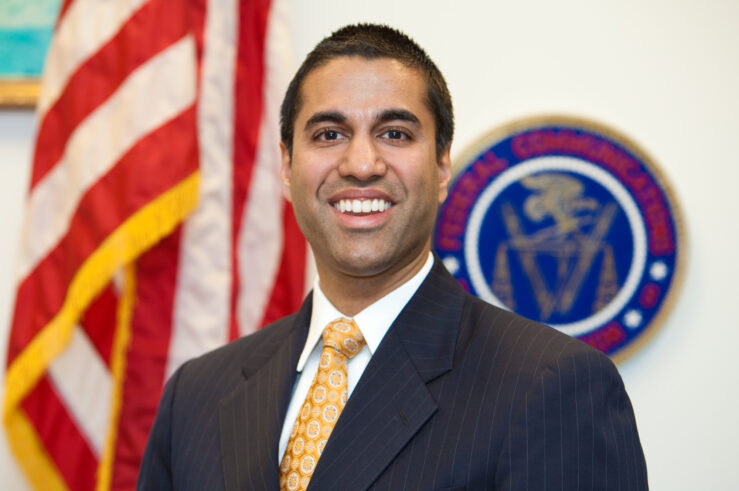Showing archive for: “FCC”
Time to Apply Office of Management and Budget Regulatory Review to Independent Agencies
Last June, in Michigan v. EPA, the Supreme Court commendably recognized cost-benefit analysis as critical to any reasoned evaluation of regulatory proposals by federal agencies. (For more on the merits and limitations of this holding, see my June 29 blog.) The White House (Office of Management and Budget) office that evaluates proposed federal regulations, the ... Time to Apply Office of Management and Budget Regulatory Review to Independent Agencies
The FCC distorted market realities to scuttle the Comcast-TWC merger
Last week, FCC General Counsel Jonathan Sallet pulled back the curtain on the FCC staff’s analysis behind its decision to block Comcast’s acquisition of Time Warner Cable. As the FCC staff sets out on its reported Rainbow Tour to reassure regulated companies that it’s not “hostile to the industries it regulates,” Sallet’s remarks suggest it will ... The FCC distorted market realities to scuttle the Comcast-TWC merger
Josh Wright, Commissioner-Provocateur
Much ink will be spilled at this site lauding Commissioner Joshua (Josh) Wright’s many contributions to the Federal Trade Commission (FTC), and justly so. I will focus narrowly on Josh Wright as a law and economics “provocateur,” who used his writings and speeches to “stir the pot” and subject the FTC’s actions to a law ... Josh Wright, Commissioner-Provocateur
Ajit Pai on Joshua Wright
I was saddened to learn that Commissioner Joshua Wright is resigning from the Federal Trade Commission. Commissioner Wright leaves the agency with a tremendous legacy. He brought to the FTC’s decision-making groundbreaking economic analysis, such as his opinion in Ardagh/St. Gobain that the government should evaluate possible merger efficiencies under a standard of proof similar ... Ajit Pai on Joshua Wright
ICLE and leading academics file amicus brief urging the court to overturn the FCC’s illegal net neutrality order
Yesterday, the International Center for Law & Economics, together with Professor Gus Hurwitz, Nebraska College of Law, and nine other scholars of law and economics, filed an amicus brief in the DC Circuit explaining why the court should vacate the FCC’s 2015 Open Internet Order. A few key points from ICLE’s brief follow, but you can read a longer summary ... ICLE and leading academics file amicus brief urging the court to overturn the FCC’s illegal net neutrality order
Don’t wanna brag or nothin, but critics have been right about net neutrality so far: TWC complaint and the Consumer Watchdog petition show it
Remember when net neutrality wasn’t going to involve rate regulation and it was crazy to say that it would? Or that it wouldn’t lead to regulation of edge providers? Or that it was only about the last mile and not interconnection? Well, if the early petitions and complaints are a preview of more to come, ... Don’t wanna brag or nothin, but critics have been right about net neutrality so far: TWC complaint and the Consumer Watchdog petition show it
The TCPA is a Costly Technological Anachronism
The Telephone Consumer Protection Act (“TCPA”) is back in the news following a letter sent to PayPal from the Enforcement Bureau of the FCC. At issue are amendments that PayPal intends to introduce into its end user agreement. Specifically, PayPal is planning on including an automated call and text message system with which it would reach ... The TCPA is a Costly Technological Anachronism
New Heritage Foundation Publication on Saving Internet Freedom
Yesterday the Heritage Foundation released a series of essays on “Saving Internet Freedom.” These analytical essays are an excellent reference work for interested members of the public who seek answers to those who claim the Internet requires new and intrusive government regulation. The introduction to the essays highlights the topics they cover and summarizes their ... New Heritage Foundation Publication on Saving Internet Freedom
The FTC, not the FCC, Should Police Internet Abuses
The FCC’s proposed “Open Internet Order,” which would impose heavy-handed “common carrier” regulation of Internet service providers (the Order is being appealed in federal court and there are good arguments for striking it down) in order to promote “net neutrality,” is fundamentally misconceived. If upheld, it will slow innovation, impose substantial costs, and harm consumers ... The FTC, not the FCC, Should Police Internet Abuses
FCC restrictions on joint sales agreements: Yet another FCC rule without basis in evidence or economics
Recently, Commissioner Pai praised the introduction of bipartisan legislation to protect joint sales agreements (“JSAs”) between local television stations. He explained that JSAs are contractual agreements that allow broadcasters to cut down on costs by using the same advertising sales force. The efficiencies created by JSAs have helped broadcasters to offer services that benefit consumers, ... FCC restrictions on joint sales agreements: Yet another FCC rule without basis in evidence or economics
Don’t tread on my Internet
Ben Sperry and I have a long piece on net neutrality in the latest issue of Reason Magazine entitled, “How to Break the Internet.” It’s part of a special collection of articles and videos dedicated to the proposition “Don’t Tread on My Internet!” Reason has put together a great bunch of material, and packaged it in ... Don’t tread on my Internet
FCC Preemption of State Municipal Broadband Restrictions is Legally Problematic and Bad for Taxpayers and Competition
By a 3-2 vote, the Federal Communications Commission (FCC) decided on February 26 to preempt state laws in North Carolina and Tennessee that bar municipally-owned broadband providers from providing services beyond their geographic boundaries. This decision raises substantial legal issues and threatens economic harm to state taxpayers and consumers. The narrow FCC majority rested its ... FCC Preemption of State Municipal Broadband Restrictions is Legally Problematic and Bad for Taxpayers and Competition






